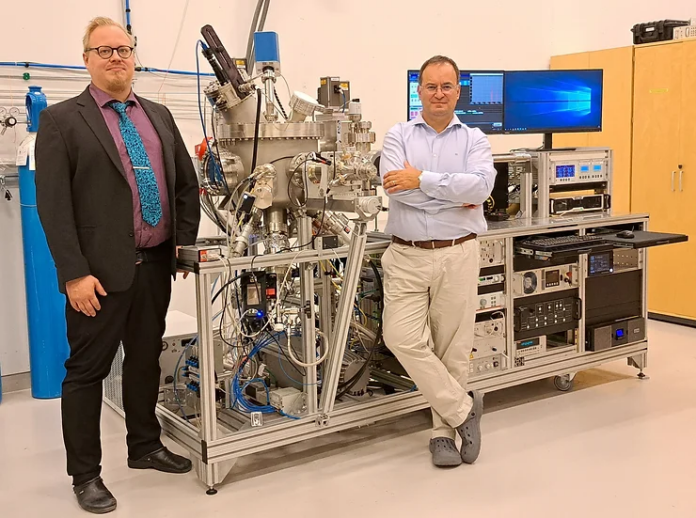While world superpowers are engaged in a battle for dominance over microchips, Finland is well-positioned to become a leader in European microchip expertise. In order to achieve this goal, the Semiconductors branch group Technology Industries of Finland, along with other corporate partners, VTT Technical Research Centre of Finland, Tampere University, Aalto University, and the cities of Tampere and Espoo, are proposing a national microchip program in Finland.

The initiative, called "Chips from Finland" (Siruja Suomesta), aims to build a European ecosystem of semiconductor and quantum industry in Finland. This ecosystem will leverage the special expertise of companies and researchers in the field, bringing fresh growth and expertise to Finland. It will also strengthen microchip self-sufficiency and technological sovereignty in Europe.
According to Mayor of Tampere Anna-Kaisa Ikonen, Finland has the opportunity to form a European ecosystem of microchip expertise. Finland is already known for its expertise in designing system-on-a-chip (SoC) solutions for mobile communication networks and is a pioneer in special processes in microelectronics. Additionally, Finland has top-notch expertise in quantum technology and integrated photonics. By focusing on these strengths, Finland can foster powerful growth in high technology expertise, innovation, and industry.
Finnish microchip expertise is already being used in Europe's most advanced SoCs. The growth of 5G mobile networks, as well as the development of next-generation 6G and AI circuits, further emphasize the importance of developing this field in Finland. The "Chips from Finland" initiative aims to attract investors and provide students with ample opportunities in the microchip technology field. Collaboration between academic researchers and businesses, supported by a center of expertise spanning Espoo, Tampere, and Oulu, will be crucial in the development of European 6G and Edge technologies.
Microchips play a vital role in everyday life and various fields, including mobile phones, communication networks, cars, and high-tech safety and security devices.
Microchips have become a significant business worth hundreds of billions of euros, prompting a battle for dominance between the USA and China. In response to the chip shortage, the European Union has created the Chips Act to ensure its digital sovereignty. The objectives of the Chips Act are to strengthen chip design, production, and packaging in Europe. As part of this effort, centers of expertise in chip technology and pilot environments will be established in EU member states, with accelerated investments of 43 billion euros.
According to Mayor of Espoo Jukka Mäkelä, ensuring Finland's strong position in implementing the Chips Act and securing EU funding will require efficient cooperation and collaboration between research and business. The benefits of such endeavors are significant, as the semiconductor industry is a global business worth 600 billion euros. It has the potential to become an industry worth several billions in Finland, employing thousands of highly paid top experts.
The "Chips from Finland" initiative proposes two main actions to support microchip expertise and foster industry growth. First, it suggests forming a national networked chip competence center to strengthen chip expertise and co-creation. This center would be supported by Tampere University's SoC Hub and Aalto University's circuit design unit, with Nokia already involved. It aims to assist companies in developing their chip expertise and support ecosystem projects that utilize chip technologies to drive industrial digitization and carbon-neutral processes.
The second action is to invest in mutually complementary pilot environments to provide growth opportunities for companies in the semiconductor industry. "Kvanttinova" in Espoo would focus on piloting microelectronics and quantum technology, using the existing cleanroom infrastructure of Micronova. This pilot environment would capitalize on Finland's strong pioneering position in these fields. "SIPFAB" in Tampere would be a chip and system in a package (SiP) pilot environment to develop and test photonic chips, promoting cooperation with companies. The pilot line would facilitate the integration of different types of chips and enable the co-design of microelectronic systems.
These actions aim to address the need for increased expertise and development capacity within the chip technology industry. By offering an integrated set of national services for chip development and usage, Finland can connect efficiently to the core European chip development network and play an active role in strengthening Europe's position.
According to CEO of VTT Antti Vasara, this initiative will open up new investment and business opportunities for Finland in areas like MEMS sensors, RF technologies, integrated photonics, quantum technology, and SiPs. President of Tampere University Mari Walls emphasizes that developing integrated services will allow Finnish operators to actively contribute to Europe's chip development network and strengthen Europe's position.







